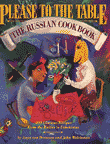This is the story of the Kazakh grandmother of one of Silk Road Caravan’s first customers. The full epic biography would be a book (she was all over the world, lived "underground" for some time, once traveled many miles of dangerous terrain all alone, disguised as a man, and once in America, she saved the lives of two little boys at a Fourth of July parade!)
Aigul Buyuk (known to her grandchildren as Apa) was born in Bakanas, a village south of Lake Balkash in what is now southeastern Kazakhstan. She was married as a teenager, but had her first husband for only a short time before he was killed, along with his two cousins, her favorite brother and several other men, in an incident with a contingent of Russian soldiers. Aigul’s first husband had been a rich and powerful man, and their group was traveling to meet with an important elder from another village, but the the czarist authorities claimed that they were a group of bandits who had attacked the soldiers and killed three of them.
The story of the Basmachi Revolt, a WWI-era uprising against Russian and Soviet rule in Central Asia, is virtually unknown in the United States. The goal was to liberate Turkestan from czarist Russia; imperial soldiers had been terrorizing Kazakhs and Kyrgyz for decades, killing people, stealing food and livestock. At the beginning of the Russian Revolution, the Basmachi movement favored the Bolsheviks because they saw the Russian monarch as the real enemy. From Soviet sources you will read that this was a movement of Islamic radicals, thugs and rabble-rousers; the perjorative term basmachi means “bandits.” Other historians would say that this was a diverse movement of common people, mostly defending themselves against attacks by imperial soldiers, and eventually attacking the soldiers’ bases in retaliation. As the Basmachi movement grew in numbers, though, it became divided, and eventually the Red Army forces defeated them. Their defeat caused hundreds of thousands of Central Asians to flee their homes in the early 1920s.
Among those thousands were Aigul and the surviving members of the family, who knew it wasn’t safe in Bakanas anymore, so they moved south to Alma Ata (now Almaty), thinking it would be a temporary move. It was at this time that Aigul lost her baby daughter to sickness, and then, very shortly after, received the awful news that her mother, who had stayed behind in Bakanas, had died of a fever that was probably caused by grief. She later told her second husband, our customer’s grandfather, that she nearly gave up at this point and wished for her own death, the pain was so great.
Not long after this, her brother-in-law came with the news that there had been witnesses to the massacre of Aigul’s husband and almost all of their traveling party, who told that the truth was the soldiers ambushed the group, and though they fought back, they were terribly outnumbered. The soldiers had even stolen personal possessions from the bodies. Even so, the “official story” had been changed, and the Kazakhs were said to have “resisted conscription” into the Czar’s army. Resistance to Russian rule was gaining strength in Central Asia, and these “conscriptions” were happening all over the place. A large number of men from several extended families began to organize themselves for war against the Russians.
Perhaps her pure rage at the injustices of the Russians pulled Aigul through these painful times. She began to prepare for the future, learning to speak and read Russian in Alma Ata. She also learned some Farsi from her sister-in-law, who had been from somewhere around Ferghana (in eastern Uzbekistan). This girl was her best friend, but she too became sick. Aigul nursed her for a long time, but in the end the fever killed her. By this time Aigul had lost almost everyone she loved, and she always seemed to blame herself for her sister-in-law’s death, although she had done everything in her power to save her.
Because Aigul was one of the few who were really literate at that time, she and three of her late husband’s relatives were sent south, first to a series of towns approaching the border with British-controlled Afghanistan, then actually crossing the border (under terrible conditions) and traveling overland to Charikhar, near Kabul. Her late husband’s family knew people who had arranged passage. This was again supposed to be only temporary, until the Russians had been chased from Bakanas.
At first, things looked hopeful. The Basmachi were fighting back, there were some successful raids on forts, the czarist army was suffering mass desertions in WWI. People believed that if the Bolsheviks won, it would mean the Kazakh and Kyrgyz lands might finally be left in peace. But no. The Bolsheviks did win, but they betrayed the people of Central Asia. Turkestan was divided, and the news Aigul was supposed to translate got worse and worse.
By this time she had begun working with the Red Cross in Kabul and learning English -- her goal was to join the Red Cross nurse-training program. Her late husband’s family was strictly against this (her father-in-law was Muslim and apparently opposed all things British because of England’s involvement in Arabia and against the Ottomans, so Aigul was very much alone until she was accepted into the nursing program. Red Cross colleagues in the British-Afghan wing pulled strings and arranged for her to get something called a “Nansen Passport” -- a special League of Nations permit for refugees fleeing the Bolshevik Revolution. She left Afghanistan for Europe, and later the U.S. She always told her children and grandchildren that nursing is what saved her -- not just physically, but mentally and spiritually. She was able to really help people, even the cases others had written off as hopeless. She believed this was the reason she had survived, when everyone close to her had died. She was meant to help those people (both soldiers and civilians) who had been given up for dead by the doctors. Considering how she always downplayed her own achievements, who can guess how many lives she must have saved? Her early years as a nurse were the one thing she was always proud of and willing to take credit for. Had she been born male, or later, she probably would have become a famous physician or surgeon.
In the U.S. Aigul continued working as a registered nurse, with 6 years in a burn unit. All the while, she must have faced heavy discrimination in America; a strong, independent Asian woman, representative of a Soviet communist place no one had ever heard of otherwise. Eventually Aigul married again. Her second husband, whom she met in a hospital where she had been a nurse, was also an exile, an Azeri. They were together for more than 50 years, to all accounts an amazing marriage. She did not forget her beginnings, and was always looking to make connections with other Qazaq-speakers. She was a wonderful storyteller, with an amazingly vivid memory. Her grandchildren grew up listening to stories abut when she was a girl, the beauty of the land, the way she learned to weave, heal sick animals, even train horses. Even so, there was always the loneliness of never being able to go home to Bakanas.
Aigul Buyuk Kereili Ipakchi died in 1988 at age 91, just a little too soon to see an independent Kazakhstan.
Friday, April 21, 2006
Subscribe to:
Post Comments (Atom)


6 comments:
Great story! Thank you guys for doing
all this. Looking forward to read more news from KZ.
Many have told me the Internet is a wonder of the ages and a miracle. This is not true. What is a miracle is the kindness and sincerity of the people one can find through the Internet. Yours is the first web-page I have visited, at the urging of my nieces, and for me it will always be the finest. Thank you for honoring my mother in this way, our entire family thanks you. At ölso terisi qalat, adam ölso da%uq^e qalat.
With kindest regards,
Murat Ipakchi
(a son of Aigul, a son of Kazakhstan)
tamasha angime eken! Marqum Aigul apai Amerikaga kelgen alghashqy qazaqtardyn biri bolghan shyghar.
Wonderful story! I wish we could write a longer one in qazaq or in russian and publish it in Kazakhstan. I visited Balkhash this summer. It is doing ok now :)
ONE TRADEGY TOLD OF MILLIONS UNTOLD. A MOVING LIFE STORY WHICH WOULD HAVE BEEN OTHERWISE LOST.
OMID IPAKCHI
Many thanks to the family of Aigul Ipakchi for allowing us to publish her story in such a public forum. She was the kind of person who made both Kazakhstan and the United States proud to call her their own.
Nyura
Great blog! Are you in the US? If so whereabouts in the US? I am Kazakh and I live in Canada though lived in the US for over 7 years. I visit the US quite often. I would like to hear more about your mother.
Post a Comment